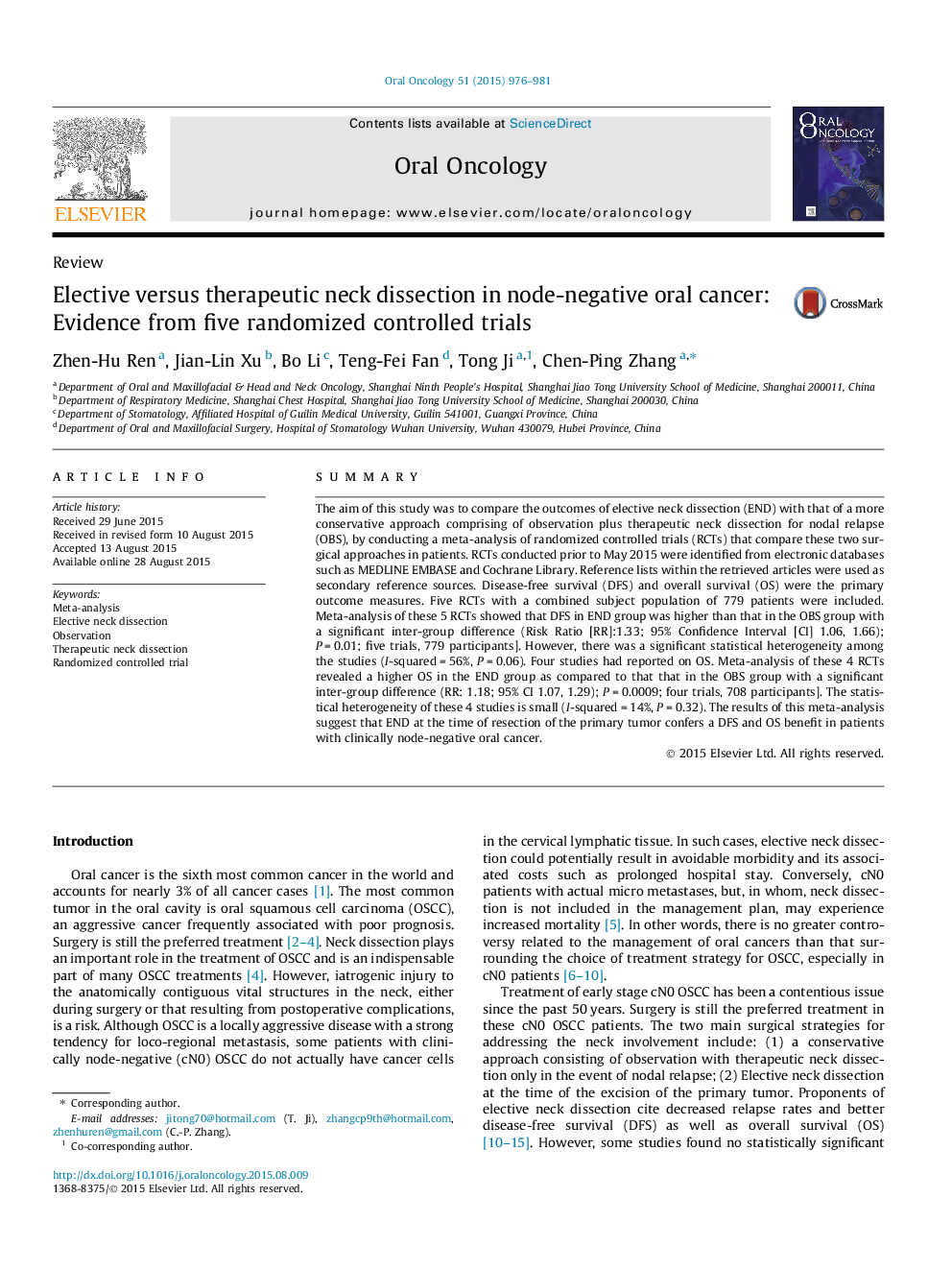| Article ID | Journal | Published Year | Pages | File Type |
|---|---|---|---|---|
| 3163920 | Oral Oncology | 2015 | 6 Pages |
•This study may provide paramount evidence for surgeons to make treatment plan of OSCC.•All the included studies are RCTS.•This study’s sample size is probably the largest by now.
SummaryThe aim of this study was to compare the outcomes of elective neck dissection (END) with that of a more conservative approach comprising of observation plus therapeutic neck dissection for nodal relapse (OBS), by conducting a meta-analysis of randomized controlled trials (RCTs) that compare these two surgical approaches in patients. RCTs conducted prior to May 2015 were identified from electronic databases such as MEDLINE EMBASE and Cochrane Library. Reference lists within the retrieved articles were used as secondary reference sources. Disease-free survival (DFS) and overall survival (OS) were the primary outcome measures. Five RCTs with a combined subject population of 779 patients were included. Meta-analysis of these 5 RCTs showed that DFS in END group was higher than that in the OBS group with a significant inter-group difference (Risk Ratio [RR]:1.33; 95% Confidence Interval [CI] 1.06, 1.66); P = 0.01; five trials, 779 participants]. However, there was a significant statistical heterogeneity among the studies (I-squared = 56%, P = 0.06). Four studies had reported on OS. Meta-analysis of these 4 RCTs revealed a higher OS in the END group as compared to that that in the OBS group with a significant inter-group difference (RR: 1.18; 95% CI 1.07, 1.29); P = 0.0009; four trials, 708 participants]. The statistical heterogeneity of these 4 studies is small (I-squared = 14%, P = 0.32). The results of this meta-analysis suggest that END at the time of resection of the primary tumor confers a DFS and OS benefit in patients with clinically node-negative oral cancer.
